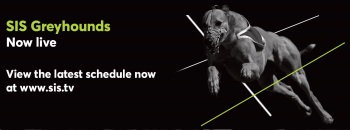There was great news, bad news, and maybe just a whiff of hope to emerge from Wednesday’s meeting of the British Greyhound Racing Fund writes Floyd Amphlett.
First the positive, and what a positive it turned out to be! The Fund reported the highest level of income for six years – £8.87m for the bookmaker’s trading year ending in March 2020.
(The timescales and deadline is quite complex to follow, since the Fund operates on voluntary contributions payable six months in arrears).
However that would compare with a figure of less than £7m for the previous twelve months.
Then of course, Covid-19 arrived. Lockdown saw two months without racing plus a further six weeks before betting shops re-opened.
Quite how badly Fund income will be affected by the cessation of racing/betting is largely speculation.
Fund chairman Joe Scanlon said: “We do our best to get feedback but obviously there will always be some area of uncertainty.
“The closure of LBOs has been partially offset, latterly, by an increase in on-line, though obviously there was no racing at all for a period.
“We are currently assuming that there will be a 50% decline in receipts for that six-month period, so income is forecast this year at around 75% of last year’s, though I must again stress, this is only an estimate at this stage.
“The increase in income prior to the pandemic was very pleasing, particularly since it came against the background of the closure of 1,200 betting shops.”
Historical context: The BGRF was created in 1993 following a directive from Chancellor Norman Lamont that horse racing and greyhound racing should both benefit from a reduction in betting duty announced by Government.
Any funds collected were originally distributed – with the agreement of the BGRF – via the BGRB – no, not the case. The BGRF has always actively distributed funds. and since 2009 by the Greyhound Board of Great Britain. You could say “The BGRF Budget is recommended each year by the GBGB – formerly the BGRB – which distributes many of the BGRF funds to the sport and oversees regulation, welfare and other provisions.”
In its first year, Fund income was £830K of which 55% was allocated to ‘chromatography and integrity services’
The voluntary payment was originally 0.25%, which rose to 0.4% and in 2004 to 0.06% of turnover, though only an estimated 55% of off-course companies contributed.
At its peak in 2008/9, Fund income was £13.9m, which in real terms would be the equivalent of £18m today.
It was at this stage that the Fund was divided more or less equally between 3 main areas, integrity, prizemoney and investment in the form of capital grants, from which track promoters benefited – an issue that caused resentment from within some parts of the industry.
The single biggest grant was the £830K – in 2008 – allocated for a new restaurant at Sheffield (equivalent to £1.07m today).
In recent years, all track capital grants have been limited to £10K per year (for up to 75% of total cost), per track restricted to welfare-related projects only. But not all tracks can benefit every year as the total budget for has been around £100k for some time.












